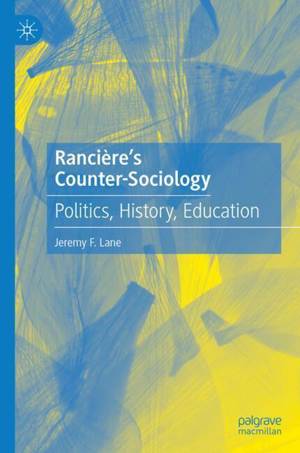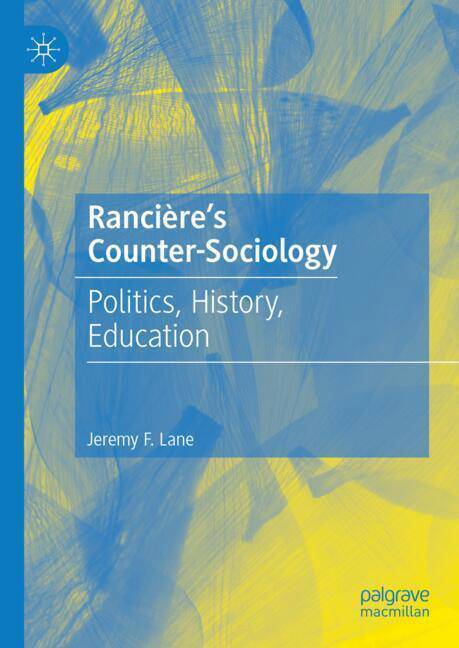
- Retrait gratuit dans votre magasin Club
- 7.000.000 titres dans notre catalogue
- Payer en toute sécurité
- Toujours un magasin près de chez vous
- Retrait gratuit dans votre magasin Club
- 7.000.0000 titres dans notre catalogue
- Payer en toute sécurité
- Toujours un magasin près de chez vous
Description
Jacques Rancière is almost unique amongst contemporary thinkers in his consistent hostility to sociologically informed modes of interpretation. This hostility is not limited to his detailed critiques of Pierre Bourdieu--it characterises his thinking about politics, emancipation, democracy, history, aesthetics, and social class; it extends into a rejection of Marxist or marxisant modes of analysis. For Rancière's harshest critics, this hostility to sociology reflects an interpretative negligence on his part, an intellectual, political, or moral flaw. Even his more favorable commentators typically upbraid him for failing to specify the historical conditions of possibility of democratic emancipation.
This book argues that such reactions are fundamentally mistaken and fail to grasp what is at stake in Rancière's rejection of sociological modes of enquiry. This rejection is attributable neither to his negligence nor to some moral flaw, and nor is it merely incidental to his thought. On the contrary, Rancière understands sociology to constitute a problematic, a set of assumptions and interpretative procedures whose blind spots must be identified and thought through in order that the possibility of intellectual and political emancipation, of democracy, and of history can be thought at all. Rancière's thought thus represents a counter-sociology and his rejection of the sociological problematic serves as the positive condition of possibility of his theory of democracy, equality, and emancipation. This new study both clarifies the nature of Rancière's critique of the sociological problematic and shows what his counter-sociology allows him to think in the domains of politics, history, and education.Spécifications
Parties prenantes
- Auteur(s) :
- Editeur:
Contenu
- Nombre de pages :
- 261
- Langue:
- Anglais
Caractéristiques
- EAN:
- 9783031598791
- Date de parution :
- 01-09-24
- Format:
- Livre relié
- Format numérique:
- Genaaid
- Dimensions :
- 148 mm x 210 mm
- Poids :
- 476 g

Les avis
Nous publions uniquement les avis qui respectent les conditions requises. Consultez nos conditions pour les avis.






